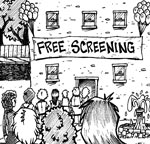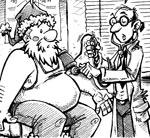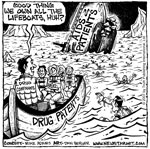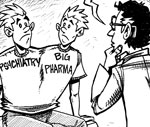Two Times Vitamin B6 for Children Is an Absolute Must
| Share on Facebook | Share on Twitter | Share on Google+ |
Vitamin B6 for infants fed formula. Breast milk provides Baby with plenty of vitamin B6. Formula, however, must contain enough added vitamin B6 to give the infant at least 0.1 to 0.2 milligrams a day. In 1951 and 1952 some infant formulas were sold that did not contain vitamin B6, and hundreds of babies suffered painful deficiency symptoms. In the infant formula industry, this experience has never been forgotten, so it is almost a certainty your child will get enough B6 from formula-but check the label anyway.
Vitamin B6 for children with autism. Supplemental vitamin B6 is also important for children who have autism. Some, but not all, children who have autism lack enough the enzyme that transforms the pyrixodine and pyridoxal forms of vitamin B6 in food into the active pyridoxine 5-phosphate form of vitamin B6 the body actually uses.
There are two ways to help a child's body make enough of the right kind of vitamin B6. One is to provide the child with both the pyridoxine form of the vitamin and the magnesium needed for the conversion of the storage form of B6 to the active form of B6. Children need a high dosage of vitamin B6, about 10 to 20 milligrams a day, and a moderate dosage of magnesium, about 100 to 300 milligrams per day. (The dosages are worked out on the basis of body weight. An autistic child needs about 0.6 milligrams of vitamin B6 per kilo or 0.3 milligrams of vitamin B6 per pound of body weight. The child also needs about 6 milligrams of magnesium per kilo or 3 milligrams per pound of body weight.)
Providing supplements to remedy this vitamin problem does not cure autism. What it can do is to help about 2/3 of all children who take the supplements improve communication skills. About 1/2 of autistic children given this combination of supplements make up developmental delays-but the effects stop if the supplement is stopped.
Vitamin B6 as part of a treatment for inflammation in children. Some children who have autism also have enzyme defects that cause high homocysteine levels. Homocysteine, it is thought, causes inflammation in the brain that interferes with reactions to social stimuli. A combination of vitamin B6, vitamin B12, and folic acid supplementation reduces production of homocysteine and improves autism symptoms in some children.
Many common nutritional supplements are helpful for at least some autistic children-except copper. Because children who have autism tend to accumulate copper and lose zinc, it's a good idea to avoid any multivitamin product that includes copper. Other supplements, including all the B vitamins, vitamin C, and magnesium, however, are likely to be helpful in at least some children who have this condition.
References:
Lelord G, Muh JP, Barthelemy C et al. Effects of pyridoxine and magnesium on autistic symptoms-initial observations. J Autism Dev Disord. 1981 Jun;11(2):219-30.
Lelord G, Callaway E, Muh JP. Clinical and biological effects of high doses of vitamin B6 and magnesium on autistic children. Acta Vitaminol Enzymol. 1982;4(1-2):27-44.
Martineau J, Barthelemy C, Cheliakine C, Lelord G. Brief report: an open middle-term study of combined vitaminB6-magnesium in a subgroup of autistic children selected on their sensitivity to this treatment. J Autism Dev Disord. 1988 Sep;18(3):435-47.
Mousain-Bosc M, Roche M, Polge A, Pradal-Prat D, Rapin J, Bali JP. Improvement of neurobehavioral disorders in children supplemented with magnesium-vitamin B6. II. Pervasive developmental disorder-autism. Magnes Res. 2006 Mar;19(1):53-62.
Rimland B, Callaway E, Dreyfus P. The effect of high doses of vitamin B6 on autistic children: a double-blind crossover study. Am J Psychiatry. 1978 Apr;135(4):472-5.
-
Skin CareMen Skin Care
-
Free ResourcesFree eBooks
-
Half of the modern drugs could well be thrown out of the window, except that the birds might eat them.Dr. Martin Henry Fischer
-
Featured Health Supplement
 If you find a product that is as effective as Total Balance, and is better value for money, let us know and we will give you a refund equivalent to your entire purchases of Total Balance…retrospective.
If you find a product that is as effective as Total Balance, and is better value for money, let us know and we will give you a refund equivalent to your entire purchases of Total Balance…retrospective.
-



















